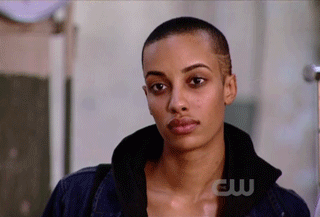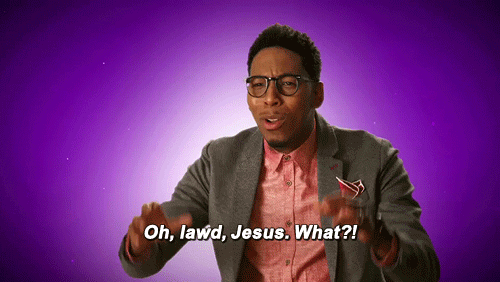Lack of knowledge about a given group of people is no excuse for dehumanizing them and/or reducing them to stereotypes, especially if you’re a writer with the knowledge and ability to do some research on your subjects. You don’t need more than half a brain to understand that every human being on this planet has individual hopes, desires, and experiences.
I never implied that it was.
Yes, and as far as I can tell nobody is making the argument that you can’t or shouldn’t have well-written black characters who happen to have magical powers. For example I doubt that too many people familiar with the real meaning of the “magical negro” trope would consider the character of Karl Mordo in the Dr Strange movie to be such a character even though he’s an explicitly magical person of color in that film.
(Edit: I probably shouldn’t presume to speak for others on this. I personally don’t consider that character to be part of the trope, anyways.)
Which is not really the topic… the specific trope of the magical negro is…
It is the specific WAY this specific trope is deployed, as not fully developed human beings in their own right, but as merely existing to help a white person, who is a fully developed character…
Right but it’s a different shade of that than the white guys literally dressed like Fu-Manchu for style points, and German “reenactment” of Native American “history”.
It’s never been fashionable for white men to dress as lawn jockeys, and appropriation of Black culture doesn’t carry the same almost argument from antiquity grade validation.
The Magical Negro thing as executed emulates the slave holder.
Where as aspects of the others more often co-opt an assumed authority of the subject onto the white protagonist.
Think about one of the core iterations of Asian Mysticism tropes.
White Ninja becomes better at Kung Fu than his mystical Asian master, and there by all of Asia.
You don’t see too many Magical Negro iterations that follow that format.
But like I said overall down right identical.
So, minstrel shows did not employee Blackface?
Fair enough point. But I was thinking outside the context of entertainment.
You would not neccisarily see that in high fashion in the same way that you would with orientalism. Round abouts the the late 19th century it was very cool for white men to literally dress identically to Fu-Manchu in common social situations. Non performative contexts where they were portraying East Asians.
Similar contrast to what I’m talking about above it is still, disturbingly, very fashionable in certain quarters to do things like Plantation themed weddings. But it’s still staff and servants who are dressed as lawn jockey’s and slaves. What is fashionable is having those people, and emulating the slave holding class.
But you’re discussing the specific examples of Fu-Manchu and the embrace of Native American history in Germany, which are directly connected to popular cultural depictions of stereotypes of these cultures. And of course, today, we still have a problem with white frat boys dressing up in Blackface at halloween. And does the whole embrace of hip-hop culture in the white suburbs not count? Spike Lee very much addressed that in his film Bamboozled…

And what about the constant appropriation of Black slang? Or ways of dressing? Much of that comes directly from Black working class culture, which for much of US history, was the class that provided the servants for many white people…
I bet if you searched hard enough online, you’d find a picture of some white asshole dressed that way for a halloween costume… ![]()
Stephen King is one of my favorite authors of all time.
That being said, I absolutely agree that he has MAJOR freakin’ issues when it comes to writing Black characters… and women… and there’s some unpleasant body shaming in there too, here and there.
It doesn’t lessen my appreciation of his craft to acknowledge that some of the tropes Mr. King uses and has used are problematic.
WTAF.
*edited for typos
Also… I’d argue that these kinds of appropriations, that are fed through mass culture, are pretty modern in general. The key to the issue is power. If Europeans were interested in non-European cultures and embracing aspects of them prior to the early modern period, it was not quite the same thing as we have today, where European peoples who have in relatively recent history worked to subjugate the rest of humanity to their own needs at the expense of the needs of others and that included the creation of dehumanizing tropes and simplified stereotypes that helped to justify their conquest or attempted conquests. Anti-Black tropes that are still part of our popular culture today helped to justify several centuries of enslavement, oppression, and colonialism. If some 13th century European sailor was running around wearing some traditional piece of Chinese clothing, it was more likely because China was the predominant power in the world at the time and they were actively exporting their culture abroad! That’s a very different scenario than Blackface or Yellowface in the modern context… or a trope like this, which is meant to reinforce in the white mind that Black people only exist in relation to us…
Europeans were sure as hell not more powerful politically than the Chinese in the pre-modern era and even well into the early modern period… To claim that that power differential that we are familiar with today existed back into antiquity is a very eurocentric and completely ahistorical reading of that power dynamic.
I don’t think this reply was meant to be addressed to me; regardless, sho you right.
Just skimming some of the willfully obtuse comments in this thread is rather disturbing, like:
I was more trying to piggyback off your comment and expand from my previous point…
But yeah, all those responses are apt!
–speedy parker/parkus in the talisman and black house written in collaboration with peter straub
–dick hallorann in the shining and doctor sleep
–john coffey in the green mile
–abigail freemantle in the stand
–red in rita hayworth and the shawshank redemption
all of these characters fit easily into the “magical negro” trope.
michael hanlon and susannah walker are well-rounded african american characters who fall outside the characteristics of the trope in that they are no more magical than anyone else in the story, they have their own set of problems, and they are not used as a plot device to rescue or save the other characters.
i really don’t understand why so many folks in this thread are being so defensive about king’s repeated use of this trope. in manyways king has done a better job of including african-american characters into his works than many a popular white author. certainly with a writer as prolific as king there are a number of his works which are mediocre to truly awful. ymmv but books like the tommyknockers and dreamcatcher were pretty freaking awful. he’s also written some mediocre works as well as some works which represent the top levels of genre fiction like the stand and his collaboration with peter straub, mentioned above, the talisman and black house. the inclusion of a “magical negro” character does not detract from their power. king also showed himself capable of writing a towering accomplishment in american letters of the late-20th century with the seven volume dark tower novel, a sustained work of 4200+ pages which, in my opinion, should earn him a nobel prize for literature.
the fact that he has used this particular trope in some of his works does not make him a poor writer. nor does it make him a bad person. it might indicate that he has been a bit lazy at points but i think it can likely be forgiven because of the totality of his work. on the other hand, the totality of his work does not make him immune to criticism to which he has shown himself to be open and accepted with a lot less defensiveness than i see being expressed in this thread. king is a grown man, fully capable of taking and profiting from criticism.
i would also note that while this has been a reply to @anon81034786 it is not directed exclusively or even mainly to him, but to him in part but mostly to numerous other commentors who have taken umbrage at any and every criticism of king. my apologies to @anon81034786 if he were feeling singled out because that was not my intention.
To be fair;
Red wasn’t Black in the novella, he was Irish.
That said, your valid point absolutely stands.
Right? Some people aren’t interested in uncomfortable conversations about pop culture, I guess…

Reminds me that there should be a similar test to the Bechdel test for characters of color… which of course, is the bare minimum…
i guess i missed that distinction because i read the novella after i saw the movie so i had morgan freeman fixed in my mind as i read it. oopsie.

As I said above, this is what taking culture seriously looks like - exploring and criticizing. For years, his fans complained that he wasn’t taken seriously (which that’s true and fair enough) and now he is being taken seriously. These kinds of discussion is what it looks like when you take culture seriously!
And I’m discussing it in the context of the Magical Negro. And how that particular trope differs in expression from Asian Mysticism and Mystic Indians.
There’s certainly a root for all of these tropes in Minstrelsy. The early progenitors of the Magical Negro are fully rooted in it. But there are differences in how each of them is expressed and functions. Based in the differences of the particular biases we throw on these people.
In most cases the appropriation you’re outlining isn’t much a factor in Magical Negro depictions. It’s more often about shoving that Minstrel depiction, and servile social position back down Black people.
Right costume.
When a 19th century intellectual showed up in traditional Chinese dress it wasn’t a Halloween costume. They were simply wearing a particular fashion.
There isn’t really a clean equivalent for white folks coopting the minstrel or servant stereotypes as fashion in that same way.
High fashion has certainly tried to use these thing is distasteful ways. But still tends to be pressing the stereotype down onto minorities.
But that difference there is similar to the differences you see between how these particular tropes play out.
You tend to see a lot of white people becoming better at being Asians and Indians than the Asians and Indians with these things. You see a lot less of that with Magical Negros.
I first read Different Seasons; Rita Hayworth and the Shawshank Redemption when I was about 19 or 20; it had been on my mom’s bookshelf for ages.
Over the years, I’ve reread it several times, as it’s one of my favorite non-supernatural tales by King.
That particular film adaptation was superb, and that makes it understandable why it’s easy to conflate the two.






